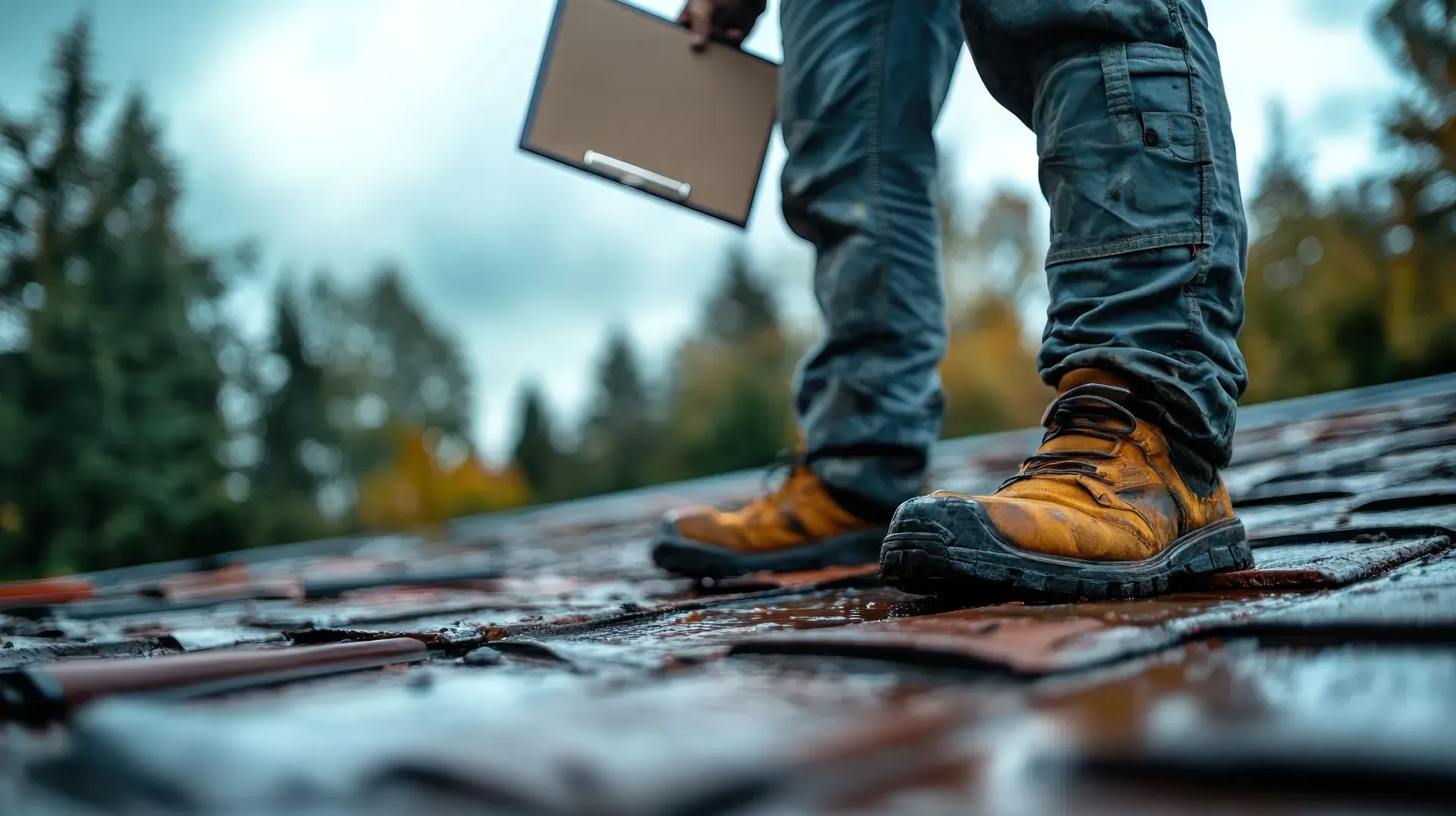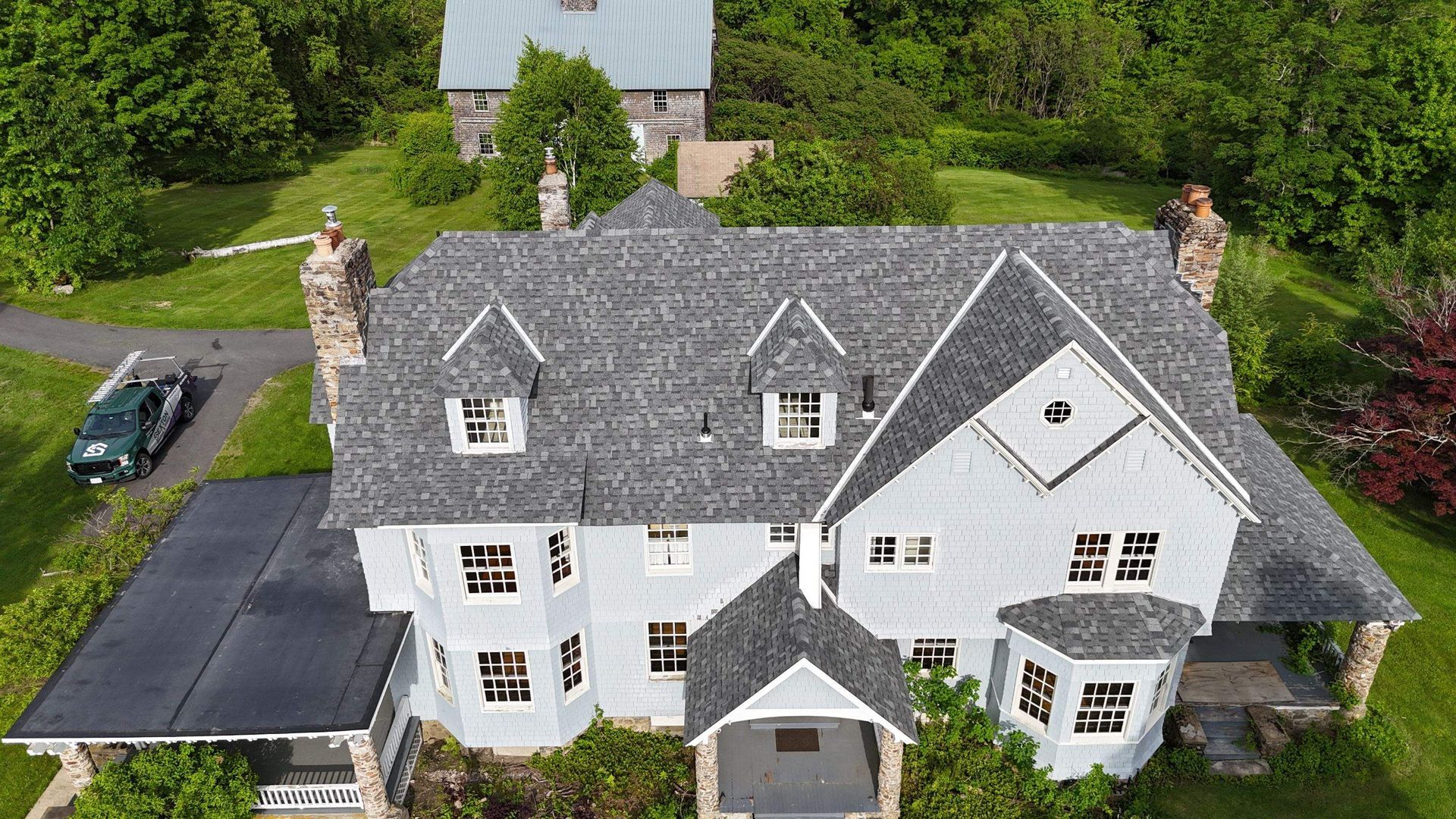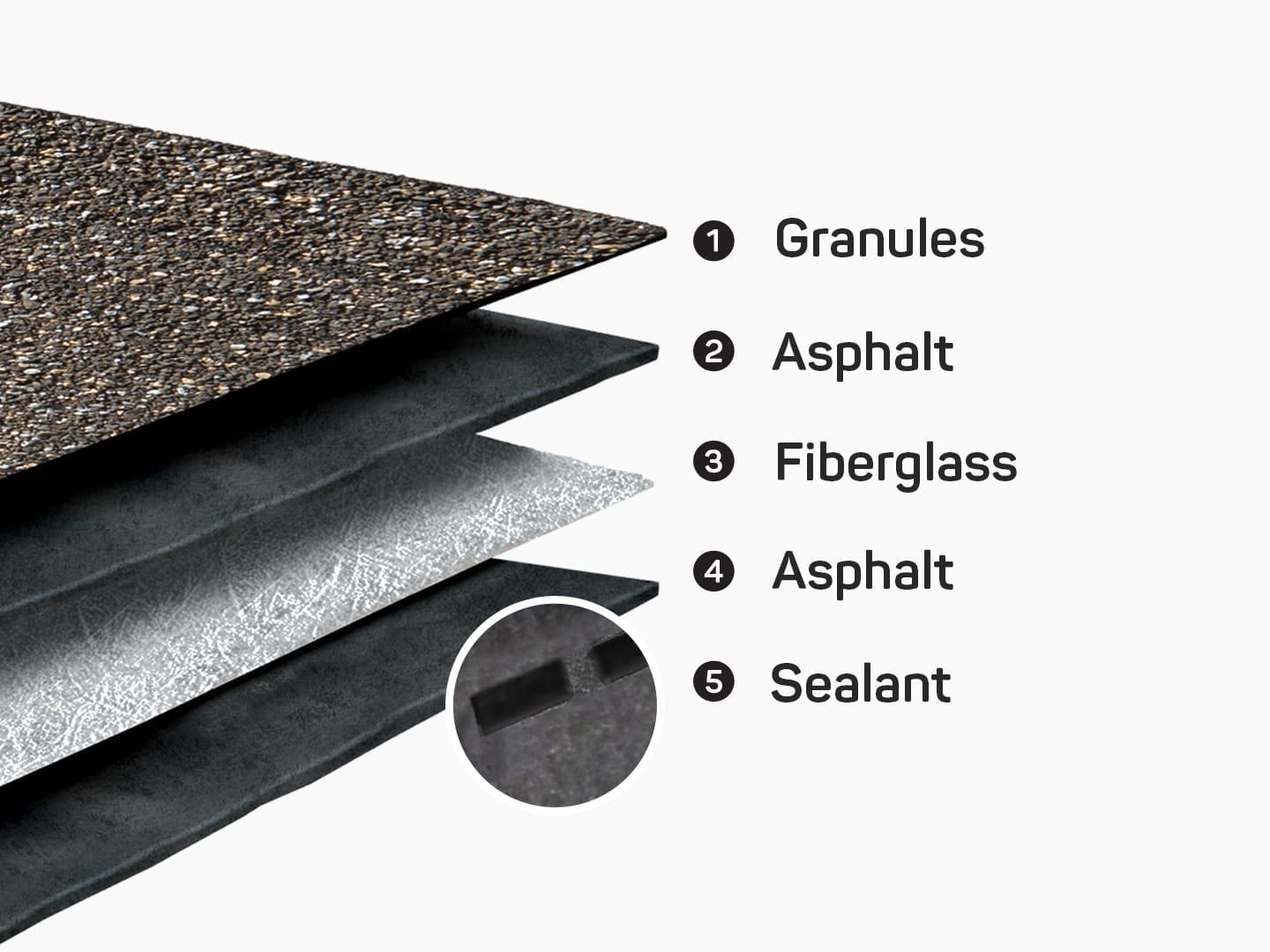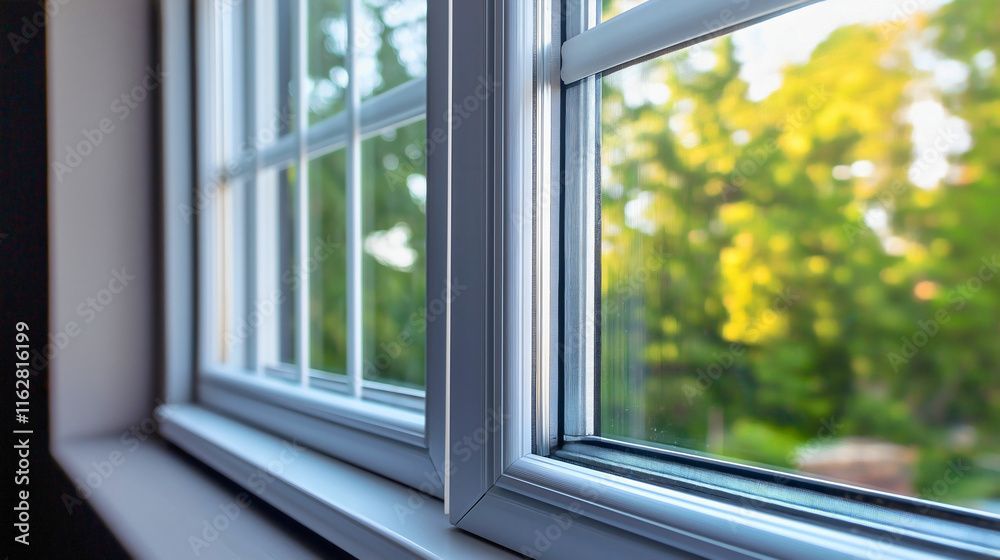This is a subtitle for your new post

Winter is a beautiful season here in the Pioneer Valley, with snow-covered landscapes and cozy evenings by the fire. However, the cold, snow, ice, and high winds that define our winters can be harsh on your roof. While many homeowners wait until spring to inspect their roofs, doing so in the winter can proactively catch potential issues early before they lead to more serious and expensive problems.
At Sexton Roofing & Siding, we believe that winter roof inspections are essential for maintaining the health of your roof and protecting your home from the elements of winter. In this blog, we'll explain why they are necessary, what you should look for, and how to ensure your roof stays in good shape throughout the season.
Why Winter Roof Inspections Matter
Winter weather in Western Massachusetts can be brutal on your roof, and damage that goes unnoticed during the colder months can snowball into significant issues when spring rains arrive. Here's why winter roof inspections are so crucial:
Early Detection of Ice Dams
Ice dams are one of the most common winter roofing problems. They form when melting snow on your roof refreezes at the eaves, creating a barrier of ice that prevents water from draining correctly. This trapped water can seep into your home, causing leaks, water damage, and mold growth.
Inspecting your roof during the winter, especially after a storm, you can hopefully catch early signs of ice dams and take steps to address them before the damage becomes severe. This might involve clearing gutters, improving attic insulation, or getting professional help to remove any existing ice buildup.
Preventing Further Damage from Snow and Ice
Heavy snow accumulation can put a lot of weight on your roof. If you have existing roof damage, such as cracked shingles or loose flashing, the added weight from snow and ice can worsen the issue, leading to leaks or even roof collapse in extreme cases.
A winter inspection allows you to identify weak spots before the snow piles up, preventing further damage and protecting your home from costly repairs down the road.
Protecting Your Home's Insulation
Did you know that if your roof isn't in good shape, it can affect the insulation in your attic? Gaps, leaks, or cracks can allow warm air inside your home to escape, leading to higher heating bills. Ice dams and water infiltration can soak your attic insulation, reducing effectiveness. By doing a roof inspection, you can address any leaks or weaknesses before they cause insulation damage, ensuring your home stays energy-efficient during the cold months.
Peace of Mind
Winter can be stressful enough without worrying about the state of your roof. A thorough inspection offers peace of mind, knowing that you've taken the necessary steps to keep your home safe and dry during the worst of the season. Plus, addressing minor issues early can prevent them from becoming major headaches.
What to Look for During a Winter Roof Inspection
If you're planning to inspect your roof during the winter months, here are the key areas to focus on:
Gutters and Downspouts
Clogged or damaged gutters can cause many problems, including ice dams. If snow and ice can't flow freely through your gutters, water can back up and seep under your shingles, causing leaks.
What to look for: Check for debris, ice, or icicles hanging from your gutters. Ice buildup along the gutter line indicates poor water drainage, possibly leading to ice dam formation.
Shingles and Roofing Materials
Your shingles are your first line of defense against the elements. Wind, snow, and ice can loosen or damage shingles, leaving your roof vulnerable to leaks and water infiltration.
What to look for: From the ground, inspect your roof for missing or damaged shingles. Look for curling, cracked, or brittle shingles, as these can indicate that your roof is nearing the end of its lifespan. If you notice any issues, it's best to contact a professional to assess the extent of the damage.
Flashing Around Roof Features
Flashing is the metal material that seals roof joints around chimneys, vents, and skylights to prevent water from getting underneath your roof. Snow, ice, and wind can damage flashing, leading to leaks.
What to look for: Check the flashing around chimneys, skylights, and other roof penetrations for signs of rust, damage, or gaps. Loose or damaged flashing can allow water to seep into your home, leading to mold and water damage.
Ice Dams and Snow Buildup
As mentioned earlier, ice dams are a common winter roofing issue. Heavy snow accumulation can also significantly weight your roof, leading to structural problems if left unchecked.
What to look for: Check the edges of your roof for signs of ice buildup, such as icicles hanging from the eaves or areas where snow is not draining correctly. Removing some of the snow may be necessary to alleviate pressure on your roof if you notice significant snow buildup.
Attic Insulation and Ventilation
Proper attic insulation and ventilation are critical to preventing ice dams and ensuring your home stays warm and energy-efficient. Warm air from your home can melt snow on the roof without adequate airflow, refreezing at the eaves and leading to ice dams.
What to look for: If you have access to your attic, check for signs of air leaks or inadequate insulation. You should also ensure proper ventilation to keep the temperature consistent.
Signs of Leaks
Leaks often start as minor, hard-to-notice issues, but if left unaddressed, they can lead to costly water damage and mold growth, which is harmful to your health.
What to look for: Inside your home, inspect your ceilings and walls for water stains, drips, or dampness, particularly in the attic and upper floors. A roof leak could need immediate attention if you see any of these signs.
How to Safely Inspect Your Roof During Winter
Roof inspections in winter should always be approached with caution. Snow and ice can make roofs slippery, and the cold weather can increase the risk of falls. Here are some tips for conducting a safe winter roof inspection:
- Use Binoculars: If you're uncomfortable going up on the roof yourself, you can use binoculars to inspect your roof from the ground. This allows you to see most issues, such as missing shingles or signs of ice dams, without the risk of climbing.
- Stay Grounded: If you get up on the roof, have a sturdy ladder and wear proper safety gear. Always use a harness and make sure the ladder is on level ground.
- Call a Professional: If you notice any issues during your inspection, it's best to contact a professional roofing company. They have the tools and experience to address roof problems, particularly in challenging winter conditions safely.
Winter roof inspections are an essential part of home maintenance in Western Massachusetts. By checking your roof for signs of damage, ice dams, and other issues, you can prevent costly repairs and ensure your home remains safe and dry throughout the winter season.
At Sexton, we specialize in roof inspections, repairs, and replacements in Western Massachusetts. Our team is experienced in dealing with the challenges of winter roofing and can help you identify and address potential problems before they become more significant.
Contact Us Today for a Winter Roof Inspection!







